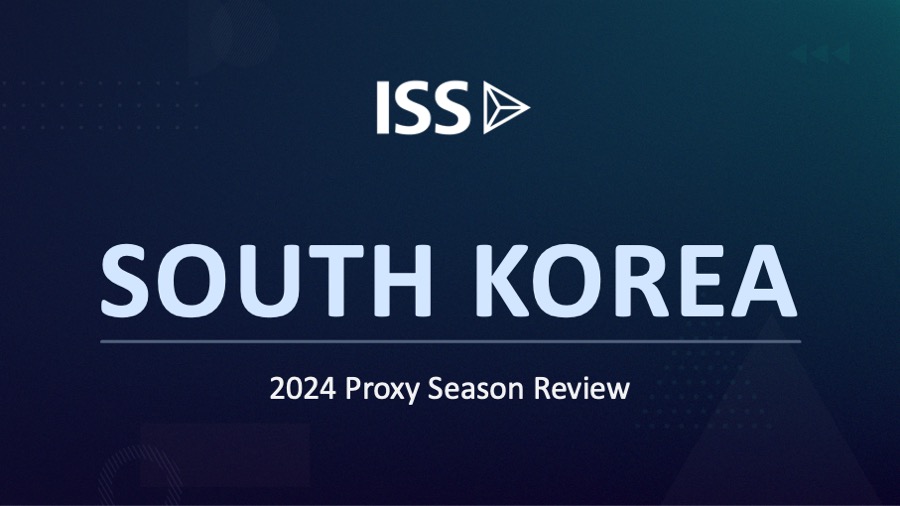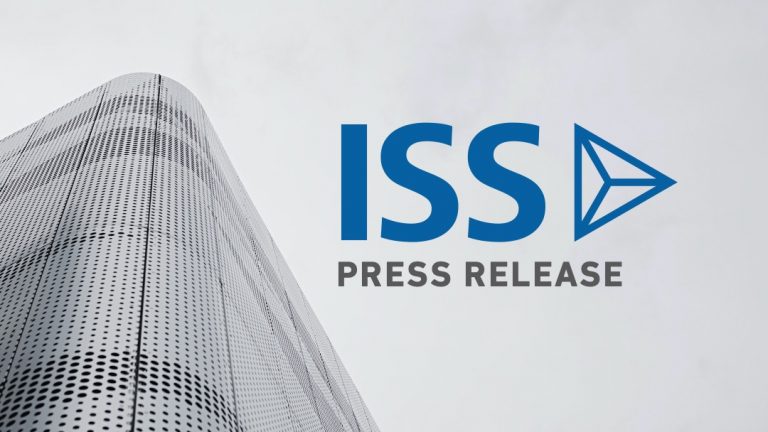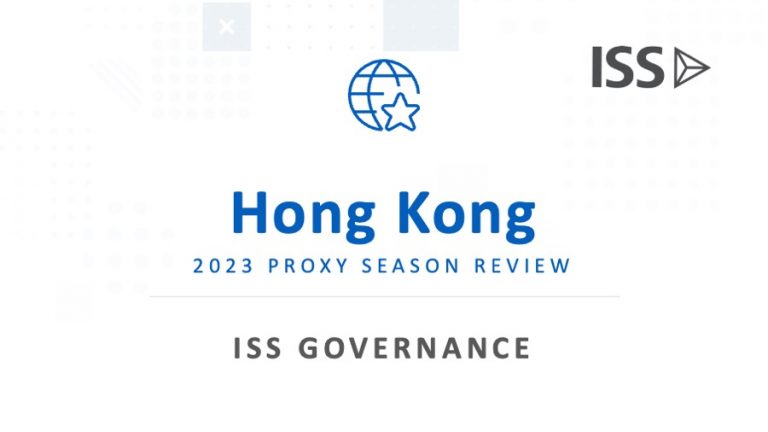Below are key takeaways from ISS’ recently released 2024 South Korea Proxy Season Review. The full report is available to institutional subscribers by logging into ProxyExchange then selecting the Governance Exchange and its Report Center tab and to corporate subscribers by logging into Governance Analytics then selecting the Governance Exchange and the Report Center tab.
- The conflict of interest between minority and majority shareholders continued. The Korean government announced its intent to address the long-standing “governance” discount for the first time in February. This set an anticipatory tone entering into the 2024 proxy season.
- Korea continued to show slow progress with disclosure practices. An extreme concentration of meetings in the last week of March continued, while most companies persistently disclosed only the minimum information required.
- Concerns regarding boards’ fiduciary duty generally remained unaddressed. Many boards continued to renominate directors who have failed to perform their fiduciary duties this season, including at Hyosung, SK, and Lotte. With respect to board oversight or proper functioning of checks-and-balances, there was no meaningful improvement. Over 90 percent of board chairs are still inside directors, 77 percent of which concurrently serve as the CEO.
- 2024 saw high-profile shareholder activism. Ahead of the season, three dissident investors sequentially launched shareholder campaigns against Samsung C&T. The highly publicized proxy contest on capital allocation was perceived as a testbed to validate how far the governance dynamic has evolved in the Korean market.
- Issuers and investors strived to find a sensible middle ground through engagement efforts. The overall number of proposals and the number of companies that received shareholder proposals decreased by approximately 40 percent compared to the previous season. While the debate on optimal capital allocation continued this season, the number of relevant shareholder proposals decreased, as some minority shareholders’ engagement efforts came to fruition. Increasingly, minority shareholders have sought the article of incorporation as an avenue to strengthen minority shareholders’ rights.
- In early May, the Financial Supervisory Service (FSS) shared a guideline for corporate issuers to disclose detailed plans to enhance corporate value on a voluntary basis. The soft start fell short of investors’ expectations, especially in terms of enforcement. Nevertheless, the guideline appears to establish for the first time a linkage between corporate governance and economic value in Korea. On July 3rd, the Ministry of Economy and Finance announced a Dynamic Economy Roadmap and a Regulatory Roadmap for the second half of 2024, which included broader tax-cut schemes for companies that pursue “Corporate Value-Up” initiatives. The announcement appears to be a coordinated effort to address, at least in part, the conflict of interest between investors and the business community.
If you are not a subscriber, please contact sales@iss-stoxx.com (for institutional investors) or contactus@isscorporatesolutions.com (for corporations) to learn more about accessing bespoke governance research.
By: Candice Kim, Jieun Chang




